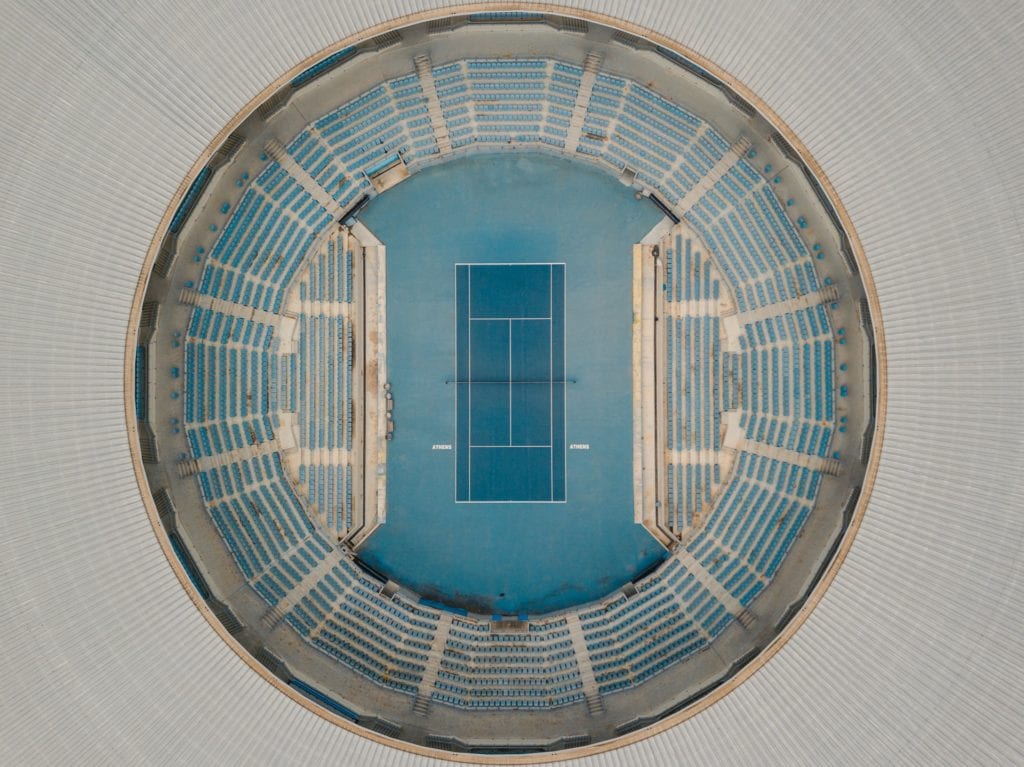The original Olympic Games lasted, uninterrupted, for over 1,000 years, making the modern run of just over 100 years, with a couple of suspensions owing to world wars, look pretty flat. They officially started, according to the ancient Greeks, in 776BC, but evidence shows that there was probably some kind of athletic festival taking place here even earlier. The importance of this starting date cannot be overemphasised. The Greeks based their dating system on the four-yearly Olympics, so for them 776BC was literally the beginning of history. Anything before that time was relegated to the field of myth.
The Games started off as a mainly religious festival with an attached running race. This developed over time to have many more events, and an emphasis that increasingly strayed away from its religious origin, while never entirely losing the connection. At its height the Games attracted thousands of spectators, hailing from every corner of the Mediterranean. Most of them camped out in the surrounding countryside.
Beyond athletics – art and culture
The sport was not the only event they had come to watch. Olympia was also a place where poets and musicians could display their talents to the widest crowd possible. Herodotus, the great historian, was one of the many who orated his work here. Imagine if the modern Games were combined with Glastonbury and the Cannes Film Festival, and then took place in the Vatican!
At its heart, however, remained the athletics. For most of its history the festival was run, and judged, by the population of Elis, the small, nearby, city state. Every four years they would send out heralds to announce the new Games and the start of the sacred truce that went with them. Surprisingly this was widely kept, and taken very seriously. Small and weak as Elis was, it still had the power to fine mighty Sparta when it infringed the truce.
The centre of the Games were the running races, oldest of all the events. These were run in the stadium by naked athletes (the entire Games were an all-male affair), and were of varying lengths: the most basic was one length of the stadium, about 200m, followed by a race of two lengths, and lastly by an endurance test of 24 lengths, almost 5km. Almost equally prestigious was the pentathlon, which attempted to discover the most all-round athlete with a five-part competition in wrestling, running, long jumping (seemingly done without a run up and while carrying weights), discus throwing, and the javelin.
Other events were also added, including boxing and chariot racing. The latter was the most dangerous of the sports, and often ended in injury or even death. In this it surpassed even the brutal pancration, a mixture of boxing and wrestling with few, if any, rules. In all of these the victors’ only prizes were a palm branch, an olive wreath, and the chance to erect a statue in the Altis, the sacred precinct of Zeus.
Corruption and cheating
One must not imagine, however, that everything was a mix of friendly competition and brotherly love. Politics and money, as in the modern Games, were not far below the surface. Above all, an athlete represented his city, and a win brought high prestige for them both. Accordingly an Olympic champion could expect great fame and also monetary rewards.
Cheating and the bribing of judges were not unknown, although never as blatantly as done by the Emperor Nero in the 211th Olympiad. This had already been delayed by two years, to AD69, in order to let Nero take part, and a new contest, in singing, had been introduced just so he could win it. The biggest farce, however, was the chariot race. The emperor competed with a team of ten horses, while the other charioteers had to make do with four. Nero had difficulty controlling this number and fell out of his chariot twice. He was still declared the winner.
Nero would have been horrified to know that it was Christianity that brought an end to the Games. In AD393, Theodosius I declared all pagan festivals to be illegal, and the Games came to an end. Thirty-three years later his successor ordered the sanctuary destroyed, and soon after a church was built over the workshop of Phidias.
A final blow was dealt by the changing course of the nearby rivers, which dumped silt on to the buildings. For much of the last 2,000 years the site was lost under 3m of mud. It was only rediscovered in 1766, by the Englishman Richard Chandler. The bulk of the excavation work was done by German archaeologists.

Partly inspired by the old ruins emerging from the mud, the Olympic Games were revived in 1896, taking place in an unabashedly ‘Classical’ stadium in Athens. Fittingly a Greek, Spyridon Louis, won the first marathon. The Greeks thought it was their right to host the centenary of the modern Games, and were furious when it went to Atlanta, Georgia in 1996.
When they reapplied to be the hosts in 2004, most people feigned indifference, but there was widespread celebrating when they won. This soon turned to concern when it seemed that nothing would be ready in time and that the Greek nation would be shamed on the world stage.
No-one was more surprised than the Greeks themselves when they pulled off a successful and well-regarded set of Games. Unfortunately their legacy has not been quite as impressive, but that is another story.
More information
Read more on global sport and culture here: